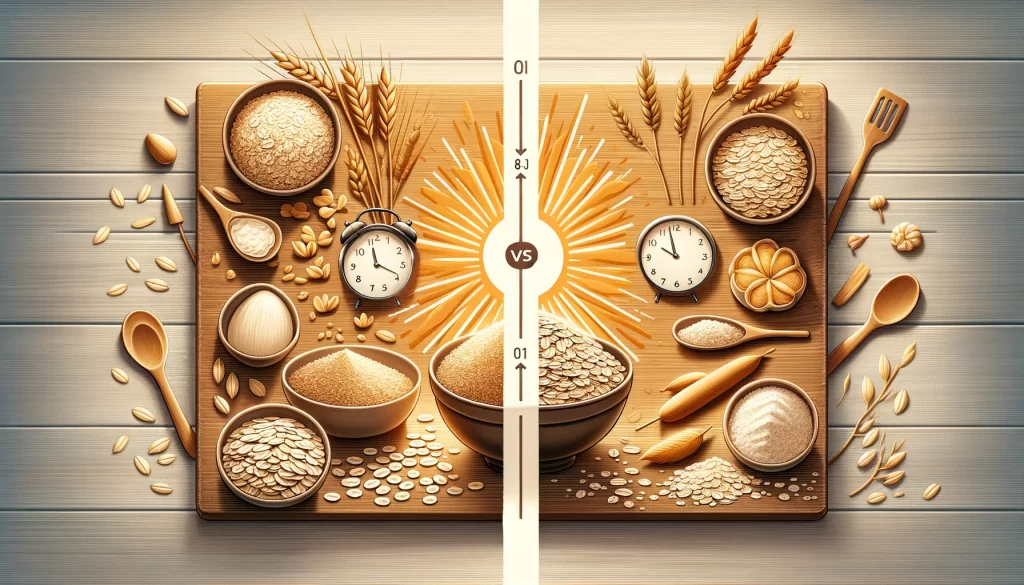Difference between rolled oats and quick oats are that they differ in processing, cooking time, texture, and taste. Understanding these differences can help you choose the right type of oat for your meals.
Processing is the main difference between rolled oats and quick oats
- Rolled Oats: Also known as old-fashioned oats, rolled oats are whole oat groats that have been steamed and then rolled into flat flakes under heavy rollers. This process stabilizes the healthy oils in the oats, extending their shelf life and giving them a slightly chewy texture.
- Quick Oats: Quick oats undergo a similar process as rolled oats but are cut into smaller pieces before rolling. This makes them cook faster. They are thinner and finer compared to rolled oats, which contributes to their softer texture upon cooking.
Cooking Time
- Rolled Oats: They typically cook within 5 to 10 minutes on the stovetop. Because they are less processed than quick oats, they take a slightly longer time to cook.
- Quick Oats: As their name suggests, quick oats cook more quickly due to their smaller size and thinner consistency. They can cook in about 1 to 5 minutes, making them a convenient option for those who are short on time.
Texture and Taste
- Rolled Oats: Rolled oats tend to have a more pronounced texture and chewiness, providing a heartier eating experience. They absorb more liquid and can become more plump and tender when cooked, which makes them ideal for baking or making granola.
- Quick Oats: Quick oats have a softer, more mushy texture after cooking, which some people prefer for quick breakfasts like porridge. They blend more easily into recipes where a smooth texture is desired, such as in smoothies, meatloaf, or oat bread.

Nutritional Differences
Nutritionally, rolled oats and quick oats are very similar, as they come from the same whole grain. Both types of oats are a good source of fiber, particularly soluble fiber, which can help lower cholesterol levels and stabilize blood glucose. They also contain similar amounts of proteins, carbohydrates, fats, and vitamins and minerals. The processing difference does not significantly affect their nutritional value.
Which to Choose?
The choice between rolled oats and quick oats often comes down to personal preference regarding texture and cooking time. For a quicker, softer oatmeal, quick oats are the best choice. If you prefer a chewier texture and have a bit more time to spare, rolled oats would be more suitable. Both types can be used interchangeably in most recipes, though the final texture of the dish may vary.
In summary, irrespective of the difference between rolled oats and quick oats, you’ll be incorporating a healthy, versatile grain into your diet that can be enjoyed in a myriad of ways, from traditional oatmeal to creative baking recipes.